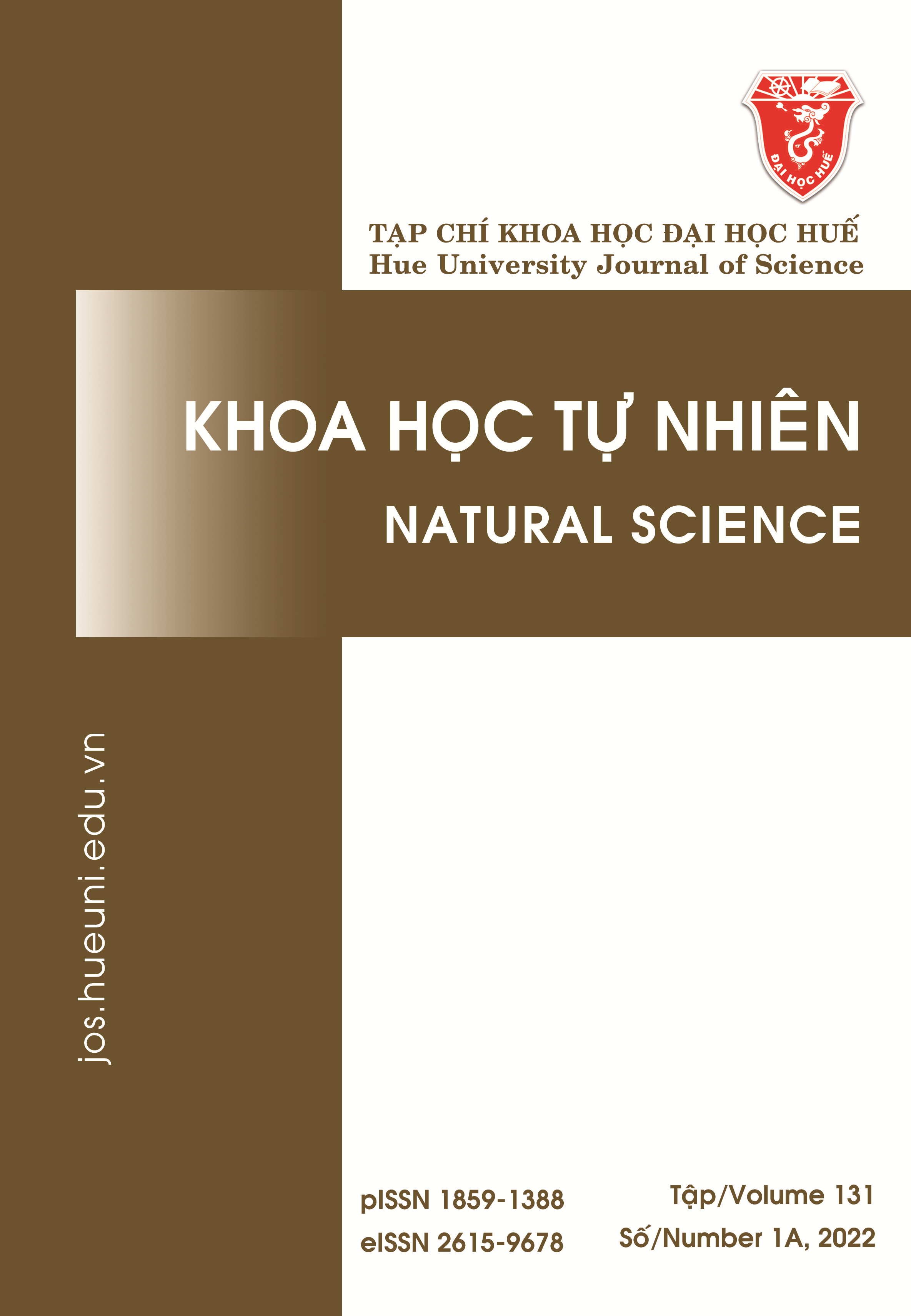Abstract
This study investigates species biodiversity composition, morphological characteristics and fluctuation in cell density of cyanobacterial Raphidiopsis raciborskii, and cylindrospermopsin toxin concentration in Buon Phong reservoir. The cylindrospermopsin concentration in the reservoir was identified by using the ELISA test. The results show that 23 species of cyanobacteria in 10 genera, 5 families, 3 orders (Chroococcales, Oscillatoriales, Noctoscales) were identified. Straight filamentous Raphidiopsis raciborskii bloomed all year round in the reservoir with cell densities of 53,6 ×106–58,3 × 107 cells/L. The results of the ELISA test show that cylindrospermopsin toxin in the reservoir existed during the 12 months of the studied period, ranging from 0.04 to 0.72 µg/L. Although the toxin concentration is below the hazard level (1 µg/L), the presence of cylindrospermopsin in the reservoir poses a potential risk because the reservoir water is used for domestic, livestock and aquaculture activities.
References
- Burford MA, Willis A, Chuang A, Man X, Orr P. Recent insights into physiological responses to nutrients by the cylindrospermopsin producing cyanobacterium Cylindrospermopsis raci-borskii. Chinese Journal of Oceanology and Limnology. 2018(36):1032-1039.
- Werner VR, Tucci A, da Silva LM, Yunes JS, Neuhaus EB, Berthold DE, et al. Morphological, ecological and toxicological aspects of Raphidiopsis raciborskii (Cyanobacteria) in a eutrophic urban subtropical lake in southern Brazil. Iheringia, Série Botânica. 2020;75.
- Amaral V, Bonilla S, Aubriot L. Growth optimization of the invasive cyanobacterium Cy-lindrospermopsis raciborskii in response to phos-phate fluctuations. Eur J Phycol. 2014(49):134-41.
- Rigamonti N, Aubriot L, Martigani F, Bonilla S, Piccini C. Effect of nutrient availability on cylindrospermopsin gene expression and toxin production in Cylindrospermopsis raciborskii. Aquat. Microb. Ecol. 2018(82):105-110.
- Puerto M, Prieto AI, Maisanaba S. Mutagenic and genotoxic potential of pure Cylindro-spermopsin by a battery of in vitro tests. Food Chem Toxicol. 2018(121):413-422.
- Yang Y, Yu G, Chen Y, Jia N, Li R. Four decades of progress in cylindrospermopsin research: The ins and outs of a potent cyanotoxin. Journal of hazardous materials. 2021;406:124653.
- Jin Y, Zhang SS, Xu HZ, Ma CX, Sun JM, Li HM, Pei HY. Application of N-TiO2 for visible light photocatalytic degradation of Cylin-drospermopsis raciborskii more difficult than that for photodegradation of Microcystis aeruginosa? Environmental Pollution. 2019(245):642-650.
- Stefanova K, Radkova M, Uzunov B, Gärtner G, Stoyneva-Gärtner M. Pilot search for cylindrospermopsin-producers in nine shallow Bulgarian waterbodies reveals nontoxic strains of Raphidiopsis raciborskii, R. mediterranea and Chrysosporum bergii. Biotechnology & Biotechnological Equipment. 2020;34(1):384-94.
- Nguyen TTL, Hoang TH, Nguyen TK, Duong TT. The occurrence of toxic cyanobacterium Cylindrospermopsis raciborskii and its toxin cylindrospermopsin in the Huong River, Thua Thien Hue province, Vietnam. Environmental Monitoring and Assessment. 2017;189(10):490.
- Karlson B, Cusack C, Bresnan E. Microscopic and molecular methods for quantitative phy-toplankton analysis (IOC Manuals and Guides, no. 55) (IOC/2010/MG/55). UNESCO, Paris. 2010.
- Duong TT, Sabine J, Le TPQ, Ho CT, Hoang TK, Nguyen TK, et al. The occurrence of cyanobacteria and microcystins in the Hoan Kiem Lake and Nui Coc Reservoir (Northern Vietnam). Environ Earth Sci. 2014(71)-:2419-2427.
- Pham TL, Dao TS, Tran ND, Jorge N, Claudia W, Utsumi M. Influence of environmental factors on cyanobacterial biomass and microcystin concentration in the Dau Tieng reservoir, a tropical eutrophic water body in Vietnam. Int J Lim. 2017(53):89-100.
- Havens KE, James RT, East TL, Smith VH. N:P ratios, light limitation, and cyanobacterial dominance in a subtropical lake impacted by non-point source nutrient pollution. Environmental Pollution. 2003;122(3):379-90.
- Dao TS, Cronberg G, Nimptsch J, Do-Hong LC, Wiegand C. Toxic cyanobacteria from Tri An Reservoir, Vietnam. Nova Hedwigia. 2010b-(90):433-448.
- Ryan EF, Hamilton DP, Barnes GE. Recent occurrence of Cylindrospermopsis raciborskii in Wai-kato lakes of New Zealand. New Zealand Journal of Marine and Freshwater Research. 2003(37):829-836.
- McGregor GB, Fabbro LD. Dominance of Cylindrospermopsis raciborskii (Nostocales, Cyano-prokaryota) in Queensland tropical and sub-tropical reservoirs: implications for monitoring and management. Lakes and Reservoirs Research and Management. 2000;5(3):195-205.
- Li X, Huo S, Zhang J, Xiao Z, Xi B, Li R. Factors related to aggravated Cylindrospermopsis (cyanobacteria) bloom following sediment dredging in an eutrophic shallow lake. Environmental Science and Ecotechnology. 2020;2:100014
- Recknagel F, Zohary T, Rücker J, Orr PT, Branco CC, Nixdorf B. Causal relationships of Raphidiopsis (formerly Cylindro-spermopsis) dynamics with water temperature and N:P-ratios: A meta-analysis across lakes with different climates based on inferential modelling. Harmful Algae. 2019;84:222-32.

This work is licensed under a Creative Commons Attribution-ShareAlike 4.0 International License.
Copyright (c) 2021 Array




